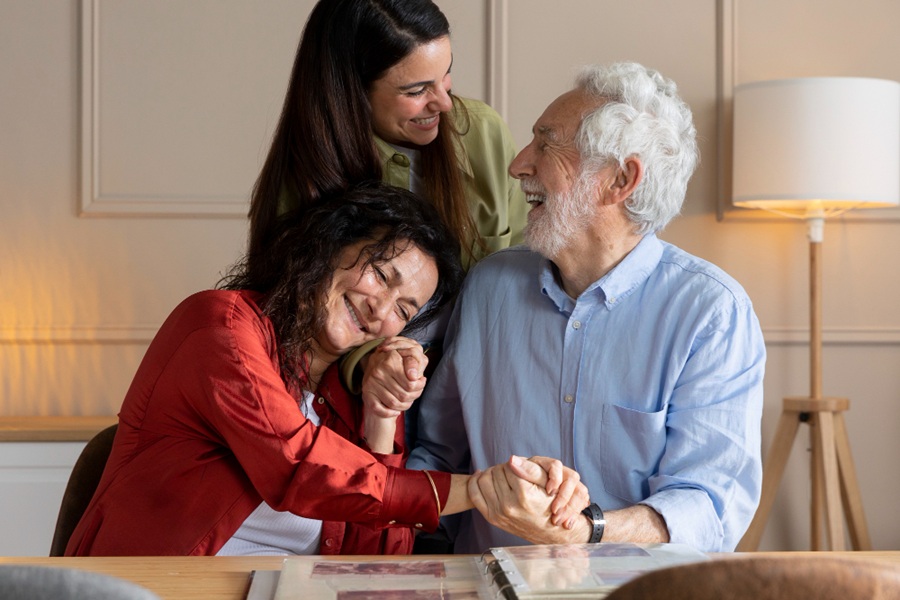Taking care of an aging parent requires a lot of dedication since it involves investing your time, effort, money, and emotions. Most caregivers say that the stress of providing daily care affects their physical and mental wellbeing, and many also experienced a decline in their personal relationships. What’s more, the impact on relationships becomes even more significant if you’re a multigenerational caregiver, which is an individual who is taking care of an elderly parent and a young child at the same time.
According to the latest data, around 44 million Americans between the ages of 45 and 55 are living with their elderly parents and children under 21 years. Taking care of children and an aging parent can put a strain on your relationships, and there may be times where you might feel like you need to put your marriage and friendships on the back burner. However, keep in mind that having close relationships play a vital role in your mental wellness and happiness, and that makes them equally important as your responsibilities as a caregiver. If dual caregiving is affecting your intimate bonds, here’s what you can do to find time for the people that matter to you, and improve your relationships at the same time.
Your Marriage
If you’re a dual caregiver and you’re married or living with a partner, chances are you’ve probably had a few arguments about certain matters related to caregiving, such as finances, or division of tasks. It’s likely that you’ve also snapped at each other due to the stress of your combined responsibilities. According to research, 80 percent of Baby Boomers who are caring for an aging parent say that it has put a strain on their marriage, while 25 percent of divorced Baby Boomers said that caregiving played a major role in their divorce.
Raising children and caring for an aging parent is a challenge, but couples need to take active steps to make things work, and rely on the strength of their relationship to get them through difficult times. Sit down and talk calmly about your concerns and worries, and come up with solutions to caregiving problems that would work for both of you. Give each other space when either of you needs a breather, but make an effort to spend time together too.
Consider turning errands into mini dates– you can grab a cup of coffee together while your elderly parent is having a treatment at the doctor’s office, or have a wine date on Friday nights while streaming a movie or a new series in your living room. At least once a year, treat yourselves to a couple’s getaway, and make arrangements for short-term respite care for your elderly loved one so they can get round-the-clock care at home. By making an effort to keep the love alive, your union will be stronger, and you’ll be able to face any challenge that comes your way.
Your Friendships
Life transitions and changing priorities can result in the loss of friendships. Many dual caregivers see their friends less and less once they get busy taking care of their kids and elderly parents, and they start feeling lonely or isolated somewhere down the line. A study reveals that 8 in 10 carers have felt lonely because of their caregiving duties, while 57 percent of carers have lost touch with their friends and relatives due to their caring role.
Your friends may not be directly involved in your caregiving journey, but they’re still an important part of your life since they help you to stay strong and feel supported, especially during difficult times. Knowing that you have people who you can turn to for advice or encouragement can help you to keep going, so stay in touch with your friends. If you can’t leave the house too often, think about inviting them over for tea or coffee. Send them a text to see how they’re doing, or have a weekly video chat to catch up. You can also use social media or email to send each other funny memes or pictures. Your friendships can give you mental and emotional support, so make it a point to reach out whenever you can.
Taking care of kids and aging parents is no easy feat, but keeping your partner and your friends close to you can help to ease your worries and make your heart feel a little lighter during hard times. Maintain your relationships to feel supported, and know that you’re not alone throughout your caregiving journey.








Leave a Reply